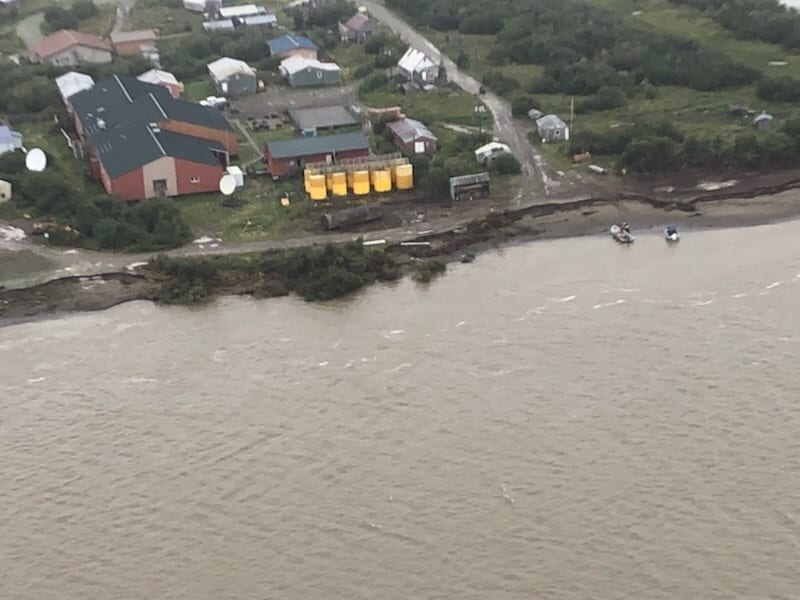
Erosion of the Kuskokwim River banks has prompted the Coast Guard to order the Lower Kuskokwim School District to remove an estimated 36,000 gallons of home heating oil from the Napakiak School fuel storage facility by Aug. 30.
“The Coast Guard is dedicated to the protection of the marine environment and in this case that means we’re taking preventative steps to mitigate the potential for pollution,” said Lt. James Nunez, of the incident management division for Coat Guard Sector Anchorage.
The administrative order from the Coast Guard was prompted by a report on Aug. 12 that the fuel storage facility owned by the school district lies within 150 feet of the river.
Napakiak, a Yup’ik Eskimo community of some 367 residents, is 15 miles southwest of Bethel along the Kuskokwim River.
Coast Guard Sector Anchorage opened the Oil Spill Trust and Liability Fund on Aug. 12 for $10,000 and deployed personnel to conduct an on-scene investigation. According to measurements conducted by Coast Guard investigators the closest point of the fuel storage facility is 76 feet from the riverbank’s erosion point.
Oil products remaining in the fuel storage facility were determined to pose an environmental hazard. The federal on scene coordinator has the authority to issue an administrative order if the threat of discharge presents an imminent and substantial endangerment to the public health or welfare of the nation.
Under the Oil Pollution Act of 1990, the responsible party is liable for, among other things, removal costs and damages resulting from this condition.





